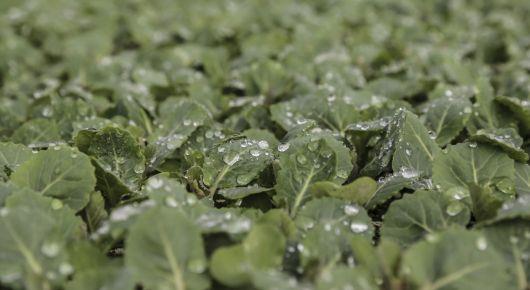Western Balkan countries join forces on the road to climate action

Climate change has become an issue of national security and survival for many countries, as it further exacerbates the fragility of natural resources through the increased frequency and severity of extreme weather events.
Climate change also affects food production and value chains and causes considerable damage and production losses in the crop, livestock, fishery and forestry sectors.
A two-day conference in Tirana, starting today, aims to address that, bringing together officials from Albania, Bosnia and Herzegovina, Montenegro, North Macedonia and Serbia to discuss national priorities for climate action. Participants plan to define opportunities to adopt a joint roadmap on climate action in the Western Balkans that should serve as a baseline for the development of regional projects and programmes.
A number of efforts are involved in addressing climate change in the Western Balkans, including mainstreaming climate change into national planning, strengthening institutional coordination and knowledge about developing climate change policies and implementing relevant activities, addressing data gaps and improving methodologies for assessing the impacts on agriculture and related sectors, collecting accurate and up-to-date information, and establishing and updating greenhouse gas emissions databases.
Western Balkan countries have made strong commitments to ensure the effective implementation of the Paris Agreement and the 2030 Agenda on Sustainable Development, and the availability of financial resources to finance urgent mitigation and adaptation measures is of great relevance to those efforts. To that end, FAO helps countries access such environmental and climate finance sources as the Green Climate Fund and the Global Environment Facility.
“The economic growth of Western Balkan countries is dependent on climate-sensitive natural resources, which leads to high costs in regard to climate change mitigation and adaptation,” said Vladimir Rakhmanin, FAO Assistant Director-General and Regional Representative for Europe and Central Asia. “A strong public sense for environmental and climate sustainability is emerging in all parts of the globe, but the distribution of financial support is uneven, and Western Balkan countries require scaled-up financial resources to be able to face the challenges posed by climate change.”
The event, also supported by the Government of the Czech Republic, is designed to help countries in the region share their experiences, focusing on exploring how efforts to mitigate climate change and reduce poverty can complement each other. Other topics for discussion include where countries stand with their efforts to implement Nationally Determined Contributions.
FAO and the United Nations Environment Programme are collaborating to develop a detailed toolkit to support the efforts of countries in Europe and Central Asian region in better understanding the opportunities and requirements for access to climate finance.
“This toolkit will be launched later in 2019 and will represent an important tool to ensure sustainable management of natural resources under a changing climate as one of the main priorities for countries in this region.” Rakhmanin added.
5 April 2019, Tirana, Albania
